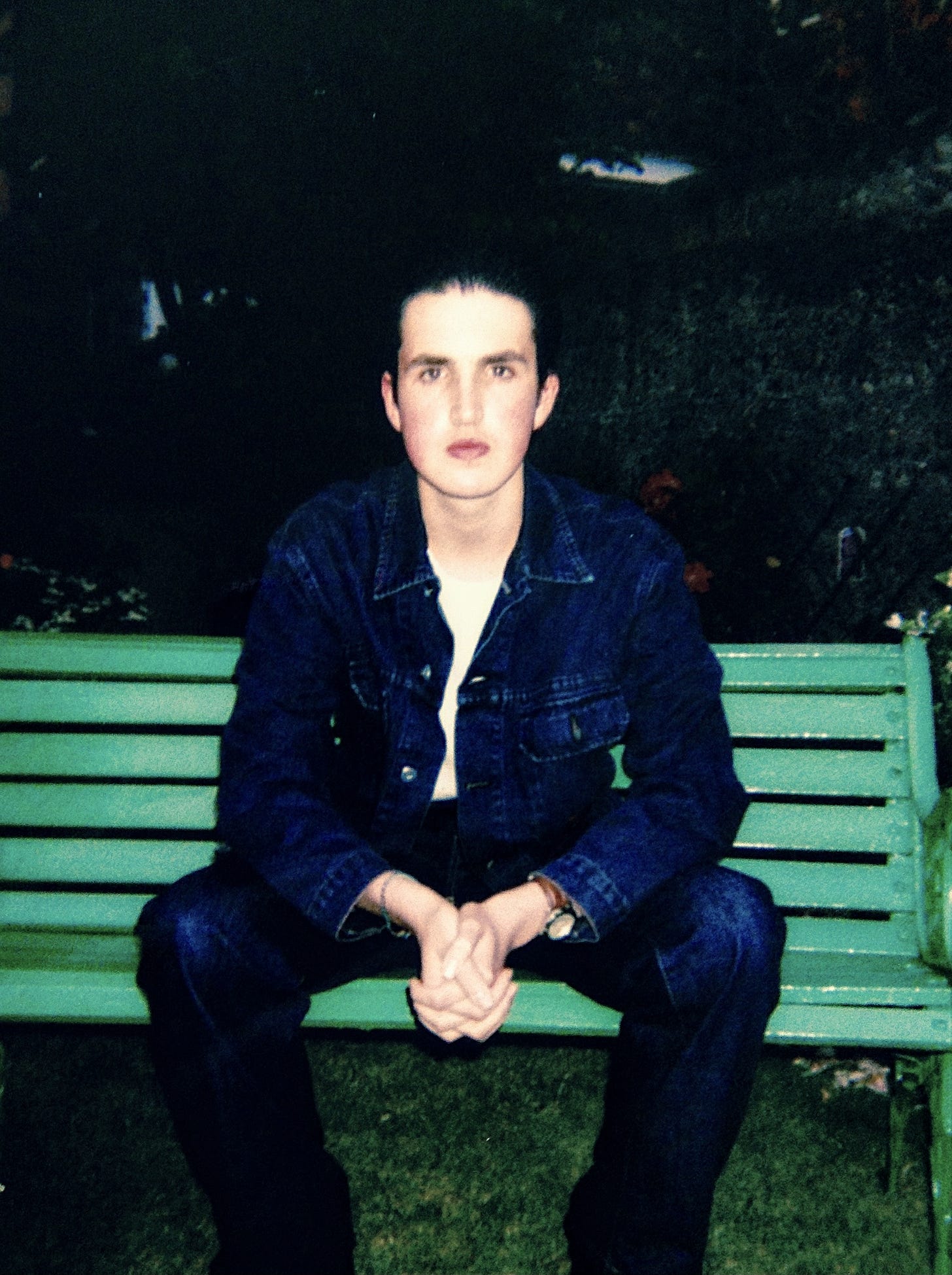I turned 18 twenty six years ago this day. Memories of that time are of a sense of the world being bigger, clearer, and for me, exhilarating. I remember sunlight, blocky mobile phones, girls, popular music that still had something to it, and the belief (mistaken and naive as it was) that ‘the world’, by which is generally meant society, was just going to get better and better. CDs, indigo denim, and Monica Lewinsky (well, that was 98, but it was still currency in news and discourse). A blessed time, a very, very fortunate time – for me.
What does the ‘for me’ indicate? They are my memories of my experience of my life, body, circumstance. Since however, I am not now, and was not then, fundamentally separate from everything else, every other phenomenon that makes up the world as phenomenon, then these memories of those times and the times and the various happenings themselves belong to the world. The “I" may indicate a private aspect and a particular access, but all our accounts are in the same bank so to speak. Your experiences, memories and mine filter through our relatively individual persons, but they begin and end their flow in the inclusive circumstance we know, or call, the world. As ‘me’ and as ‘you’, as, in other words, the centres of experience we take to be ourselves in relation to the world and others, access to those accounts of memory is exclusive. But as fully integrated parts of a whole, albeit a whole not apparent through immediate perception, whose inner harmony may not be graspable through discursive reasoning, the entirety of the contents as well as the continuing activity of those particular accounts belongs to one being, though that ‘one’ shouldn’t be taken too strictly as a numerical signifier.
A passage from the Japanese writer Kurata Hyakuzo, writing approvingly of what he found in the philosophy of Nishida Kitaro, expresses this idea.
“The most primitive state of reality was not individual consciousness. That is one independent and complete natural phenomena. It is a unitary Sein (Being) with no such consciousness of self and other. It is the only reality. It is the only background. It is the spontaneous self-development of a singular experience. It is neither subjective nor objective, but is rather one absolute. Individual consciousness is not only something which is developed outgoing from the most primitive state of reality, it’s experience presupposes other selves to stand opposed to it as a necessary condition. For there is no subject that exists on it’s own without an object. Hence, individual consciousness is not what is fundamental to life”1
Me at 18…. what a stud….lol
Kurata Hyakuzo, Looking for One's Self in the Opposite Sex, translated by Richard Stone, Asian Philosophical Texts, edited by Takeshi Morisato and Roman Pasca, Mimesis international press, 2020





If I ever had a Whiggish view of history I certainly don’t recall it. I think in terms of golden ages in the short term (the last third of my life), the medium term (the first part of my life and beyond to some extent), history in the long term. The medium term is an illusion as it might have been a golden age for me but not most of the world. History? Partly true, partly not. Certainly honour played a role at certain times. But the last period, say 20 years plus, everything has deteriorated badly so that now we inhabit the Deluded Age. The Tao Te Ching says: when the people lose their sense of awe some awful visitation will descend upon them. At least you have retained a sense of awe but you are in a minority.
That's a great quotation. Thank you for sharing it!